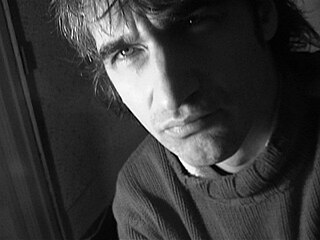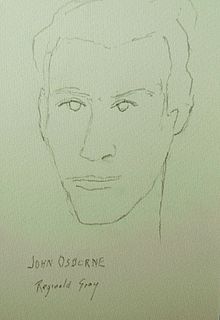Related Research Articles
Cecil Antonio "Tony" Richardson was an English theatre and film director and producer whose career spanned five decades. In 1964 he won the Academy Award for Best Director for the film Tom Jones.

Joan Maud Littlewood was an English theatre director who trained at the Royal Academy of Dramatic Art, and is best known for her work in developing the Theatre Workshop. She has been called "The Mother of Modern Theatre". Her production of Oh, What a Lovely War! in 1963 was one of her more influential pieces.

John James Osborne was an English playwright, screenwriter and actor, known for his excoriating prose and intense critical stance towards established social and political norms. The success of his 1956 play Look Back in Anger transformed English theatre.
This article contains information about the literary events and publications of 1961.

Sir Jonathan Wolfe Miller CBE was an English theatre and opera director, actor, author, television presenter, humourist and physician. After training in medicine and specialising in neurology in the late 1950s, he came to prominence in the early 1960s in the comedy revue Beyond the Fringe with Peter Cook, Dudley Moore and Alan Bennett.

Look Back in Anger (1956) is a realist play written by John Osborne. It focuses on the life and marital struggles of an intelligent and educated but disaffected young man of working-class origin, Jimmy Porter, and his equally competent yet impassive upper-middle-class wife Alison. The supporting characters include Cliff Lewis, an amiable Welsh lodger who attempts to keep the peace; and Helena Charles, Alison's snobbish friend.

Kitchen sink realism is a British cultural movement that developed in the late 1950s and early 1960s in theatre, art, novels, film and television plays, whose protagonists usually could be described as "angry young men" who were disillusioned with modern society. It used a style of social realism which depicted the domestic situations of working-class Britons, living in cramped rented accommodation and spending their off-hours drinking in grimy pubs, to explore controversial social and political issues ranging from abortion to homelessness. The harsh, realistic style contrasted sharply with the escapism of the previous generation's so-called "well-made plays".

Gurpreet Kaur Bhatti is a British Sikh writer who has written extensively for stage, screen and radio. Her play Behzti (Dishonour) was cancelled by the Birmingham Rep after protests against the play by Sikhs turned violent and alleged death threats forced Bhatti to go into hiding.

The Royal Court Theatre, at different times known as the Court Theatre, the New Chelsea Theatre, and the Belgravia Theatre, is a non-commercial West End theatre in Sloane Square, in the Royal Borough of Kensington and Chelsea, London, England. In 1956 it was acquired by and remains the home of the English Stage Company and is known for its contributions to contemporary theatre.

Nora Noel Jill Bennett was a British actress, and the fourth wife of playwright John Osborne.

Mustapha Matura was a Trinidadian playwright living in London. Characterised by critic Michael Billington as "a pioneering black playwright who opened the doors for his successors", Matura was the first British-based dramatist of colour to have a play in London's West End, with Play Mas in 1974. He was described by the New Statesman as "the most perceptive and humane of Black dramatists writing in Britain."
George Alexander Cassady Devine was an English theatrical manager, director, teacher, and actor based in London from the early 1930s until his death. He also worked in TV and film.
Charles Gerald Wood was a playwright and scriptwriter for radio, television, and film. He lived in England.
A Better Class of Person (1981) is an autobiography written by dramatist John Osborne and published in 1981. Based on Osborne's childhood and early life, it ends with the first performance of Look Back in Anger at the Royal Court Theatre in 1956. A sequel, Almost a Gentleman, was published in 1991.
Avril Elgar Williams was an English stage, radio and television actress.

Gregory Motton is a British playwright and author. Best known for the originality of his formally demanding, largely a-political theatre plays at the Royal Court in the 1980s and 1990s, state of the nation satires in the 1990s, and later for his polemics about working class politics, A Working Class Alternative To Labour and Helping Themselves – The Left Wing Middle Classes In Theatre And The Arts.

The Blood of the Bambergs (1962) is a short two-act play by John Osborne, published in his book "Plays for England". It was designed to be shown in a double-bill with another short play, Under Plain Cover. The Blood of the Bambergs is a satirical commentary on royal weddings, in a variation on the story of The Prisoner of Zenda.

Under Plain Cover (1962) is a short two-act play by John Osborne, published in his book "Plays for England". It was designed to be shown in a double-bill with another short play, The Blood of the Bambergs. The play is a satirical commentary on sexual hypocrisy. It was the first play directed by Jonathan Miller.

Ana Inés Jabares-Pita, born January 21, 1987, is a Spanish designer working across opera, dance, theater, film, concerts and exhibitions.
Trish Cooke is a British playwright, actress, television presenter, scriptwriter and children's author who might be best known for being a presenter on the children's series Playdays. She also wrote under the pseudonym Roselia John Baptiste.
References
- ↑ Contemporary Dramatists. St. James Press. 1982. ISBN 978-0-312-16664-9.
- ↑ Luc Gilleman (4 February 2014). John Osborne: Vituperative Artist. Taylor & Francis. pp. 143–. ISBN 978-1-317-84280-4.
- ↑ Luc Gilleman (4 February 2014). John Osborne: Vituperative Artist. Routledge. pp. 11–. ISBN 978-1-317-84281-1.
- ↑ George Stade; Karen Karbiener (12 May 2010). Encyclopedia of British Writers, 1800 to the Present. Infobase Publishing. pp. 374–. ISBN 978-1-4381-1689-1.
- ↑ Peter Whitebrook (21 October 2015). John Osborne: anger is not about...: "Anger Is Not About...". Oberon Books. pp. 19–. ISBN 978-1-78319-876-4.
- ↑ Jonathan Miller (3 March 2017). One Thing and Another: Selected Writings 1954–2016. Oberon Books. pp. 425–. ISBN 978-1-78319-746-0.